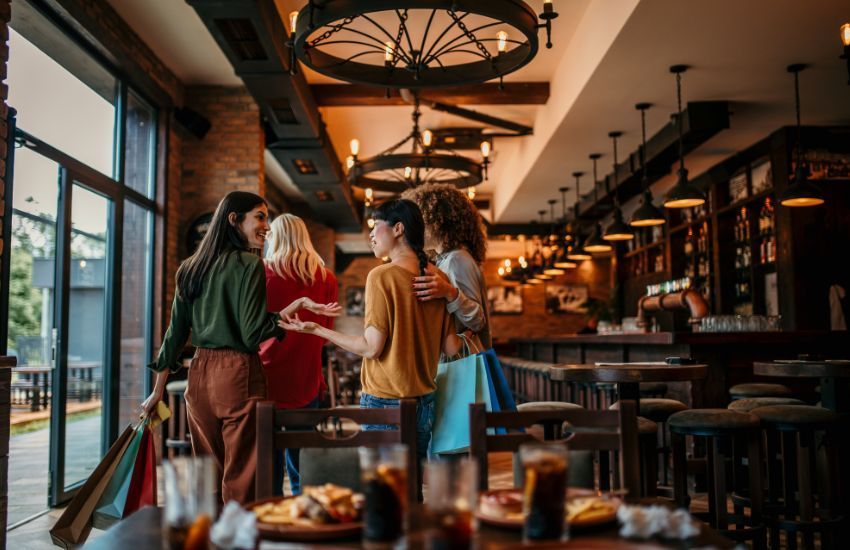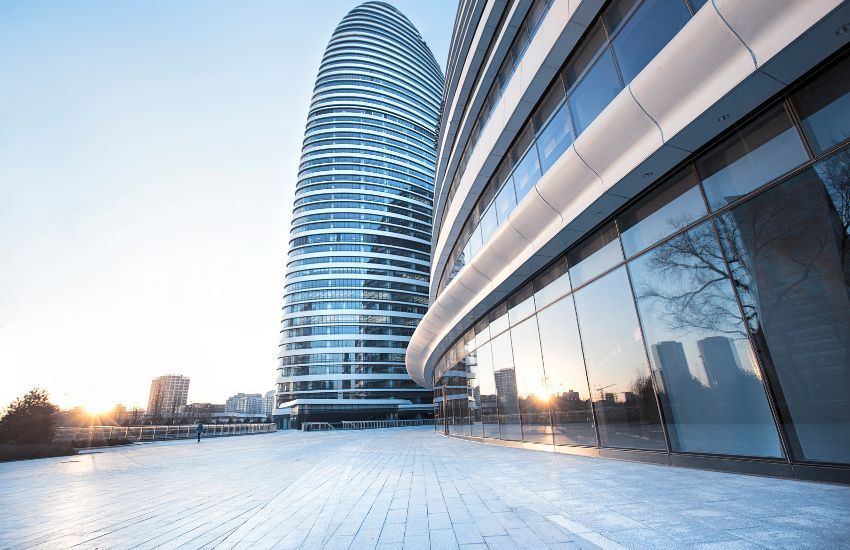Why More Restaurants in Connecticut Are Turning to Specialized Insurance Plans
See How We're Different
or call us: (888) 585-5188
25 May 2025

In recent years, the restaurant industry in Connecticut has witnessed a significant transformation, particularly in how establishments approach risk management. As the landscape of dining evolves, so too do the challenges that restaurants face. From food safety to employee liability, these challenges necessitate a tailored approach to insurance. This article explores the reasons behind the increasing trend of restaurants in Connecticut opting for specialized insurance plans.
The Unique Risks Faced by Restaurants
Restaurants are not just places to eat; they are complex operations that involve numerous risks. Understanding these unique challenges is crucial for restaurant owners when considering their insurance needs.
Food Safety and Liability
Food safety is a primary concern for any restaurant. With strict health regulations in place, the risk of foodborne illnesses can lead to severe consequences, including lawsuits and loss of reputation. Specialized insurance plans often include coverage for food contamination, which can protect restaurants from financial losses due to recalls or health department fines.
Moreover, liability claims can arise from various incidents, such as slip-and-fall accidents or allergic reactions to menu items. Having a comprehensive insurance plan that addresses these specific liabilities is essential for safeguarding the restaurant's financial health. The importance of staff training in food safety cannot be overstated; regular training sessions not only ensure compliance with health regulations but also foster a culture of safety that can significantly reduce the risk of incidents. Additionally, implementing a robust system for tracking food sources and expiration dates can further mitigate risks associated with food safety.
Employee-Related Risks
Restaurants are typically staffed by a diverse group of employees, each with unique roles and responsibilities. This diversity can lead to various workplace injuries, from cuts and burns in the kitchen to slips in the dining area. Specialized workers' compensation insurance can provide coverage tailored to the restaurant environment, ensuring that employees are protected while also minimizing the financial impact on the business.
Additionally, issues such as harassment or discrimination claims can arise in any workplace. Specialized insurance plans can offer coverage for employment practices liability, providing peace of mind to restaurant owners in the event of such claims. Furthermore, fostering a positive workplace culture through open communication and team-building activities can help mitigate these risks. Regularly scheduled employee evaluations and feedback sessions can also contribute to a more harmonious work environment, ultimately leading to lower turnover rates and improved service quality.
Property and Equipment Risks
Restaurants rely heavily on their physical space and equipment. From ovens and refrigerators to the building itself, any damage can lead to significant operational disruptions. Specialized property insurance can cover these assets against various risks, including fire, theft, and natural disasters. This coverage is critical for maintaining business continuity and protecting investments.
Moreover, the age and condition of restaurant equipment can pose additional risks that owners must consider. Regular maintenance and inspections are vital for preventing breakdowns that can lead to costly repairs or replacements. Implementing a preventative maintenance schedule not only extends the life of the equipment but also ensures that everything operates efficiently, thereby enhancing the overall dining experience for customers. Additionally, investing in security measures, such as surveillance cameras and alarm systems, can further protect against theft and vandalism, providing restaurant owners with greater peace of mind.
The Benefits of Specialized Insurance Plans
With the myriad of risks that restaurants face, specialized insurance plans offer several advantages that can significantly benefit owners and operators.
Tailored Coverage
One of the most significant advantages of specialized insurance is that it provides tailored coverage to meet the specific needs of a restaurant. Unlike standard insurance policies, which may offer broad coverage, specialized plans can be customized to address the unique risks associated with the food service industry. This ensures that restaurant owners are not paying for unnecessary coverage while also having adequate protection for their specific operations.
For example, specialized plans can include coverage for food spoilage, equipment breakdown, and even liquor liability, which are critical considerations for many establishments. Additionally, these plans can extend to cover delivery services, catering operations, or outdoor seating areas, which may not be included in a standard policy. By aligning the coverage with the specific operational aspects of the restaurant, owners can ensure they are fully protected against potential liabilities that could arise from their unique business model.
Cost-Effectiveness
While it may seem counterintuitive, specialized insurance plans can often be more cost-effective in the long run. By focusing on the specific risks that a restaurant faces, owners can avoid the pitfalls of over-insurance. This targeted approach can lead to lower premiums and fewer claims, ultimately saving money for the business.
Furthermore, many insurance providers offer discounts for restaurants that implement risk management strategies, such as employee training programs or safety audits. These proactive measures can lead to reduced premiums and a more favorable insurance experience. Additionally, by investing in safety equipment or technology, such as fire suppression systems or kitchen safety training, restaurants can further mitigate risks, which not only enhances safety but can also lead to additional savings on insurance costs. This creates a win-win scenario where the restaurant operates more safely while also benefiting financially.
Enhanced Peace of Mind
Operating a restaurant comes with its fair share of stress, and the last thing an owner wants to worry about is whether they have adequate insurance coverage. Specialized insurance plans provide peace of mind, knowing that the business is adequately protected against the unique risks it faces. This allows owners to focus on what they do best: providing exceptional dining experiences for their customers.
Moreover, having specialized insurance can also foster a sense of trust among employees and customers alike. When staff members know that their workplace is safeguarded against potential hazards, it can boost morale and productivity. Similarly, customers may feel more secure dining at a restaurant that demonstrates a commitment to safety and risk management, enhancing their overall experience. This not only helps in building a loyal customer base but can also improve the restaurant's reputation in the community, leading to increased patronage and long-term success.
Trends in the Restaurant Industry
The restaurant industry is constantly evolving, influenced by consumer preferences, technological advancements, and regulatory changes. Understanding these trends can help restaurant owners make informed decisions about their insurance needs.
Increased Focus on Health and Safety
In the wake of the COVID-19 pandemic, health and safety have become paramount for restaurants. Consumers are more conscious than ever about cleanliness and food safety practices. This shift has led to an increased demand for insurance coverage that addresses pandemic-related risks, such as business interruption and liability claims stemming from health concerns.
Restaurants are now seeking specialized insurance plans that include coverage for enhanced sanitation practices, employee health screenings, and other measures designed to protect both staff and customers. This trend is likely to continue as health and safety remain top priorities for diners. In addition to traditional cleaning protocols, many establishments are investing in advanced air filtration systems and UV sanitization technologies, which not only help in maintaining a safe environment but also serve as a marketing tool to attract health-conscious patrons.
Technology Integration
The integration of technology in the restaurant industry has accelerated, with many establishments adopting online ordering, delivery services, and contactless payment options. While these advancements enhance customer experience, they also introduce new risks, such as data breaches and cyber liability. Specialized insurance plans that include cyber liability coverage are becoming increasingly important for restaurants as they navigate this digital landscape.
As restaurants continue to embrace technology, the need for insurance that addresses these emerging risks will only grow. Owners must stay informed about the latest trends and adjust their insurance coverage accordingly. Moreover, the use of data analytics to understand consumer behavior and preferences is becoming more prevalent, allowing restaurants to tailor their offerings. However, this reliance on technology also necessitates robust cybersecurity measures to protect sensitive customer information, making it essential for restaurant owners to partner with insurance providers that understand the nuances of these technological advancements.
Environmental Considerations
With growing awareness of environmental issues, many restaurants are adopting sustainable practices, such as reducing waste, sourcing local ingredients, and minimizing their carbon footprint. However, these initiatives can also introduce new risks. For example, a restaurant that relies on local suppliers may face challenges if those suppliers encounter issues that affect food availability.
Specialized insurance plans can provide coverage for businesses that prioritize sustainability, ensuring that they are protected against risks associated with their environmental commitments. This alignment of values can also resonate with consumers, enhancing brand loyalty and reputation. Additionally, many restaurants are exploring innovative practices like composting and zero-waste initiatives, which not only contribute positively to the environment but can also lead to cost savings in the long run. As consumers increasingly seek out eco-friendly dining options, restaurants that effectively communicate their sustainability efforts may find themselves at a competitive advantage, further underscoring the importance of comprehensive insurance coverage that supports these initiatives.
Choosing the Right Insurance Provider
With numerous insurance providers offering specialized plans, selecting the right one can be a daunting task for restaurant owners. Several factors should be considered to ensure the best fit for the business.
Industry Experience
When choosing an insurance provider, it is essential to consider their experience within the restaurant industry. Providers with a deep understanding of the unique risks faced by restaurants will be better equipped to offer tailored solutions. Look for providers that specialize in hospitality and have a proven track record of serving restaurant clients. Additionally, it can be beneficial to seek out testimonials or case studies from other restaurant owners who have successfully navigated similar challenges. This firsthand insight can provide valuable information about how well a provider understands the nuances of the restaurant business and their ability to respond to specific needs.
Comprehensive Coverage Options
Not all insurance providers offer the same coverage options. Restaurant owners should seek providers that offer a wide range of specialized insurance plans, including liability, property, and workers' compensation. The ability to bundle various types of coverage can also lead to cost savings and simplify the insurance management process. Furthermore, it is important to inquire about additional coverage options that may be relevant to your specific restaurant type, such as food spoilage insurance or coverage for outdoor dining areas. Understanding the full spectrum of available options can help ensure that your restaurant is protected against unforeseen events that could disrupt operations.
Customer Service and Support
Excellent customer service is crucial when dealing with insurance matters. Restaurant owners should choose providers that offer responsive support and guidance throughout the insurance process. This includes assistance with claims, policy adjustments, and risk management strategies. A strong partnership with an insurance provider can make a significant difference in navigating the complexities of risk management. Moreover, consider the availability of educational resources and training offered by the provider. Many reputable insurance companies provide workshops or online materials that help restaurant owners understand best practices for minimizing risks, which can be invaluable in creating a safer work environment and potentially lowering insurance costs over time.
The Future of Specialized Insurance in Connecticut's Restaurant Industry
As the restaurant industry in Connecticut continues to evolve, so too will the landscape of specialized insurance. The increasing recognition of the unique risks faced by restaurants is likely to drive further innovation in insurance products and services.
Emerging Coverage Options
As new risks emerge, insurance providers will need to develop innovative coverage options to address these challenges. This may include policies that cover emerging technologies, such as drones for delivery services, or enhanced coverage for environmental risks associated with sustainable practices. Restaurant owners should stay informed about these developments to ensure they have the most relevant coverage. Additionally, as consumer preferences shift towards plant-based and locally sourced ingredients, insurance products that address food safety and liability related to these trends may become essential. Coverage that accounts for the complexities of food sourcing and preparation can help mitigate risks associated with foodborne illnesses and supply chain disruptions.
Collaboration with Industry Associations
Industry associations play a vital role in advocating for the needs of restaurant owners. As specialized insurance becomes more prevalent, collaboration between insurance providers and industry associations can lead to the development of best practices and guidelines for risk management. This partnership can ultimately benefit restaurant owners by providing them with the resources they need to navigate the complexities of insurance. Furthermore, these associations can facilitate networking opportunities that allow restaurant owners to share their experiences and strategies regarding insurance challenges, fostering a community of support and knowledge sharing that can enhance overall industry resilience.
Continued Education and Awareness
As the restaurant industry becomes more aware of the importance of specialized insurance, education will play a crucial role in shaping the future of risk management. Workshops, seminars, and online resources can help restaurant owners understand their insurance options and make informed decisions. By fostering a culture of awareness and education, the industry can better equip itself to handle the unique challenges it faces. Moreover, integrating insurance education into culinary school curricula could prepare future restaurateurs to approach risk management proactively. This foundational knowledge can empower new business owners to prioritize safety and compliance from the outset, ultimately contributing to a more robust and sustainable restaurant ecosystem in Connecticut.
Conclusion
The trend of Connecticut restaurants turning to specialized insurance plans reflects the industry's evolving landscape and the unique risks that come with it. By understanding the specific challenges they face, restaurant owners can make informed decisions about their insurance needs. Specialized insurance plans provide tailored coverage, cost-effectiveness, and peace of mind, allowing owners to focus on delivering exceptional dining experiences.
As the industry continues to adapt to emerging trends and challenges, the importance of specialized insurance will only grow. By staying informed and proactive, restaurant owners can navigate the complexities of risk management and ensure the long-term success of their establishments.








